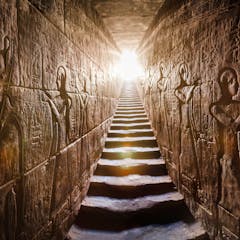
Articles on Russian revolution
Displaying 1 - 20 of 37 articles

Yevgeny Zamyatin was a born loner and instinctive satirist, whose usual response to collective enthusiasm was to dissent.

A new book follows four women philosophers through ten of the worst years in the 20th century, spanning 1933, the year Hitler was appointed Chancellor of Germany, to the thick of the second world war.

Vladimir Putin’s propaganda about the Russian invasion of Ukraine reflect themes once propagated by Vladimir Lenin.

A monumental book, newly translated into English, describes in painstaking, archeological detail, how the socialist project transformed the spaces in which Soviet citizens lived.

The two sides have used media very differently during the conflict: Zelensky has inspired support, Putin has stifled dissent.

The West’s new approach to Russia – bar it from international organizations, restrict international trade, prevent further military moves – looks just like how it treated Russia in the 20th century.

Who are the Ukrainians and when were they part of the same empire as Russia? A scholar answers basic questions on war in Ukraine.

By allowing Russian military presence in Belarus, president Aliaksandr Lukashenka has forfeited his country’s sovereignty.

Just because deep-rooted Russian fears might not seem reasonable doesn’t mean they aren’t real in Vladimir Putin’s mind.

History isn’t just learning facts. Students learn about the past by researching information and synthesising it to form an evidence-based argument. This skill is useful for a range of careers.

When the future is clearly changing but we can’t focus on tomorrow, should we just keep dancing? Pamela Rabe anchors the absurdity of The Cherry Orchard.

The way foreign correspondents cover Russia tells the story of its relations with the rest of the world.

Revolutions are built not on deep misery but on rising expectations. History may not provide much hope of immediate change in Hong Kong – but protesters may have a longer view.

From the French Revolution to #MeToo, social movements often burst into the mainstream with what seems like little warning. Cass Sunstein explains why.

This was no high watermark of British communism; just a key milestone in the struggle for better working conditions.

Persecuted by Stalin, writers Lydia Chukovskaya and Anna Akhmatova endured threats, cold and starvation. And in an epic feat, Lydia memorised the poems of her friend that were too dangerous to commit to paper.

The Russian Revolution – an event that affected more than Russia and was more than a revolution.

A century ago, Russian leaders staged mock trials on rape and abortion to educate citizens about new Soviet laws and values. Then, as now, victim-blaming and ‘he said, she said’ marred the verdict.

The physical and political space of cities can be shaped from above or below, but few have had more revolutionary changes, first under the tsars, then the communists, than St Petersburg.

Russian revolutionary Nadezhda Krupskaya, like other leading women in the new Stalin-led state, was marginalised. But in her case, because she was Lenin’s widow.
